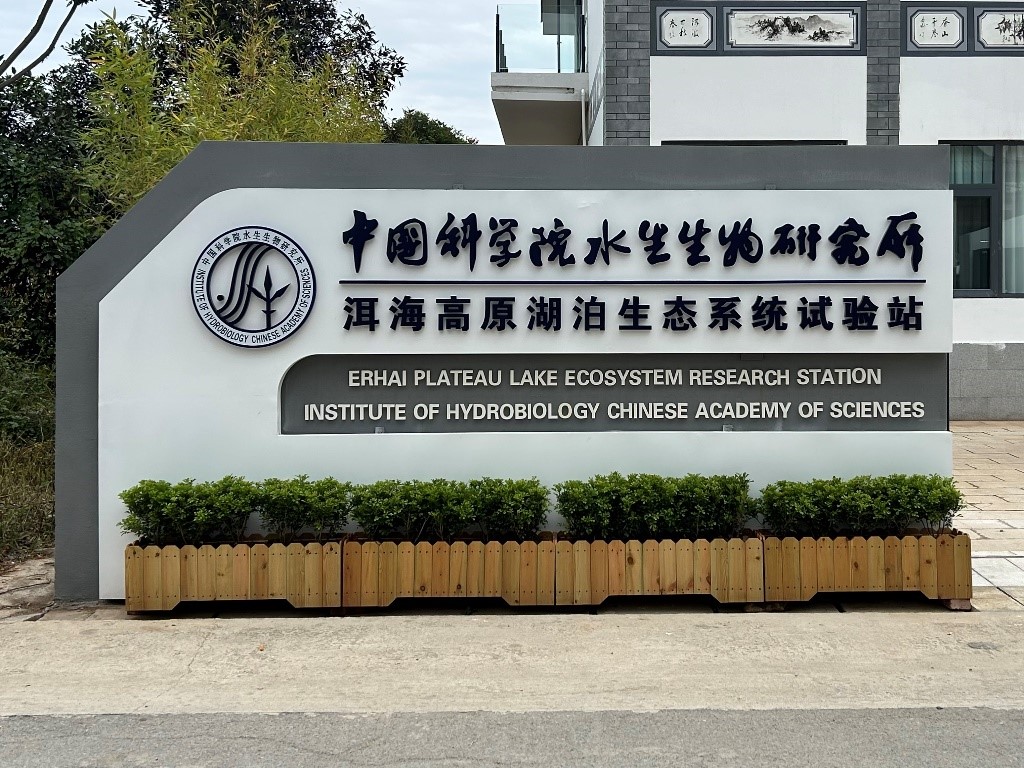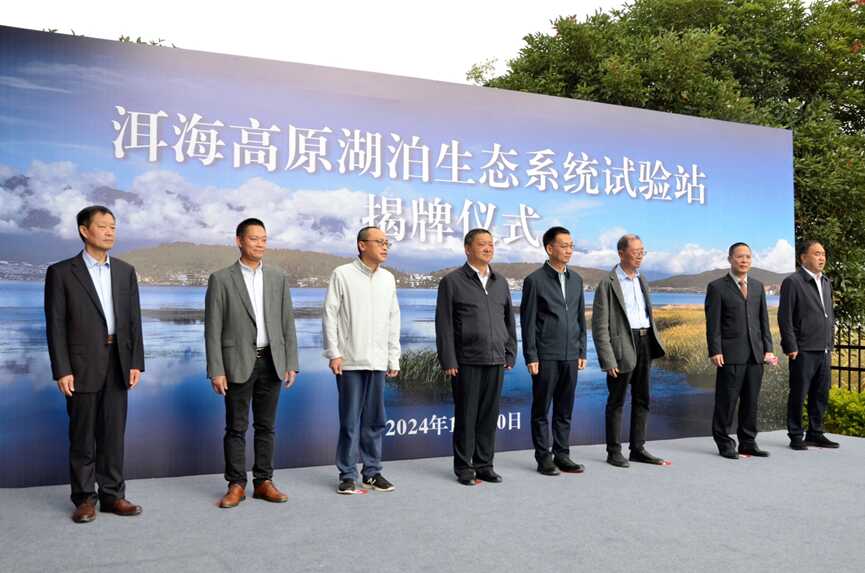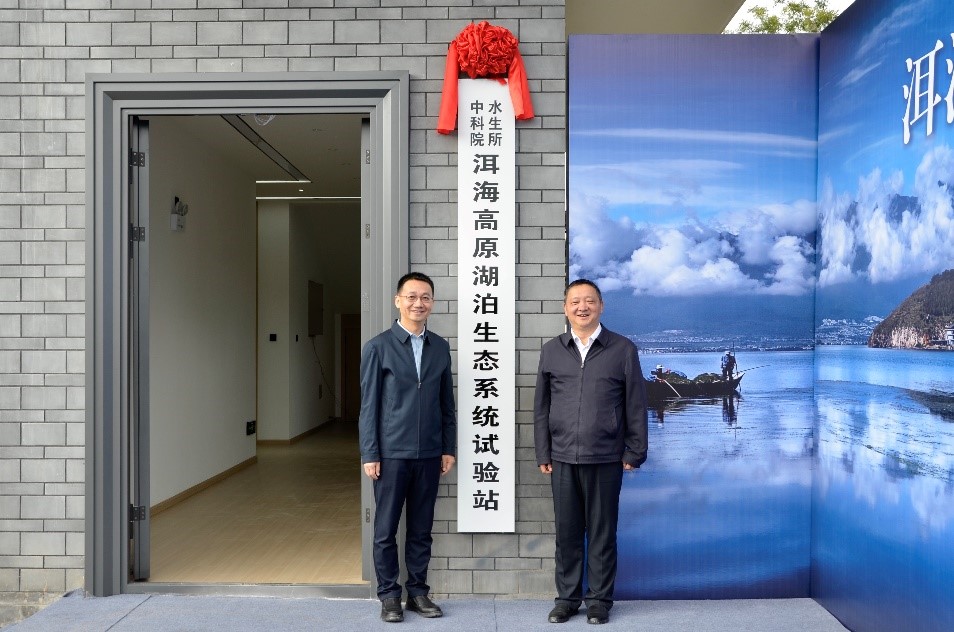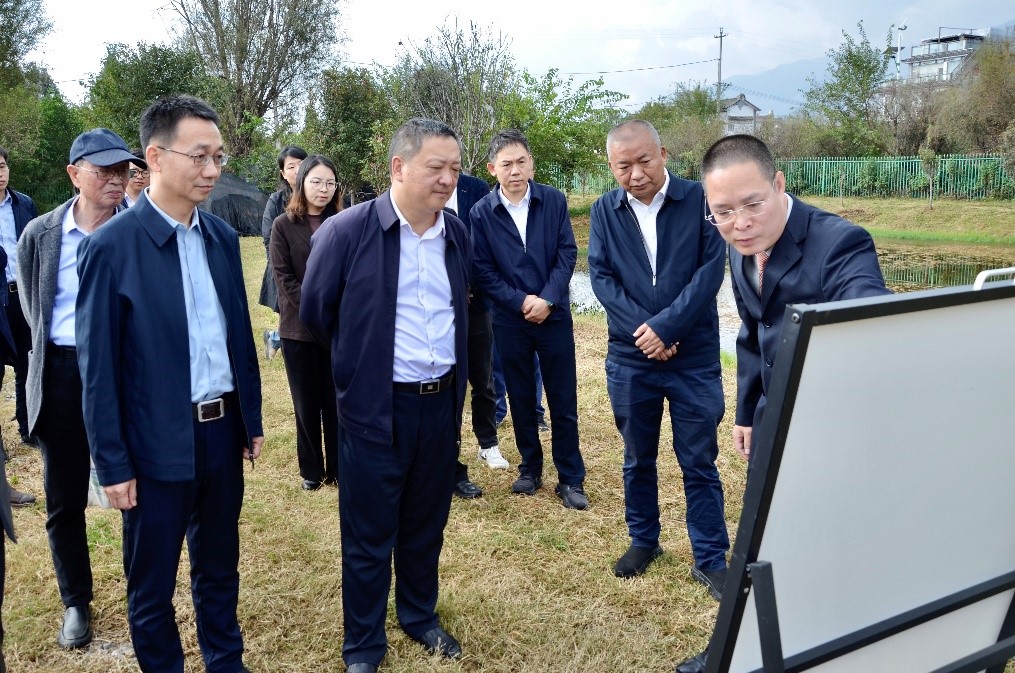
Newsroom
IHB Inaugurates Erhai Plateau Lake Ecosystem Research Station

On the morning of October 20, 2024, the Institute of Hydrobiology (IHB) of the Chinese Academy of Sciences (CAS) officially launched the Erhai Plateau Lake Ecosystem Research Station in Dali, Yunnan Province. The unveiling ceremony was led by IHB director MIAO Wei and YANG Guozong, secretary of the Dali Prefecture Party Committee, marking the beginning of a new chapter in the region’s environmental research.
The ceremony was presided over by LIU Zhanhua, deputy governor of Dali Prefecture, and featured a detailed presentation by IHB Professor CAO Te, who outlined the station’s construction and its primary research objectives.
The Erhai Plateau Lake Ecosystem Research Station consists of two key facilities: the Aquatic Plant Resource Conservation Center in Daying Village, Shangguan Town, and the Aquatic Animal Resource Conservation Center in Gusheng Village, Wanqiao Town. Spanning 7.635 hectares, the station will serve as a critical hub for long-term monitoring of Erhai Lake’s aquatic ecosystem. It will focus on essential areas such as aquatic vegetation restoration, fishery management, and the prevention of harmful algal blooms. Additionally, the station will address ecological and structural challenges facing the lake’s environment, translating scientific research into effective conservation strategies.
Following the ceremony, participants toured the Aquatic Plant Resource Conservation Base, engaging in discussions on the historical evolution and current distribution of aquatic plants in Erhai, as well as the practicalities of restoring aquatic vegetation in the lake.
IHB’s involvement with Erhai Lake stretches back to the 1950s. In 1957, Prof. LI Shanghao, during a survey of Yunnan’s plateau lakes, discovered an algal bloom of Aphanizomenon flosaquae in the southern part of Erhai. In the 1960s and 1970s, Prof. WU Xianwen conducted several fish surveys, leading to the discovery and naming of the Erhai four-bearded barb (Barbodes daliensis). More recently, since 2003, Prof. LIU Yongding has spearheaded research into the ecological and environmental factors driving algal blooms in the lake, including the first report of ultra-microalgae in Erhai.
In the 21st century, IHB has played an active role in national water pollution control and ecosystem restoration initiatives. During China’s 11th and 12th Five-Year Plans, the institute led significant projects on water pollution prevention and habitat restoration in Erhai. IHB has also applied for numerous national and regional research grants focusing on ecological water management, algal bloom control, fish stocking, and aquatic vegetation restoration. Through these efforts, IHB has established strong collaborations with local governments, contributing to the long-term protection and management of Erhai Lake.
The opening of the Erhai Plateau Lake Ecosystem Research Station marks a major milestone in IHB’s ongoing commitment to advancing ecological research and conservation in Erhai. By strengthening partnerships between research institutions and local authorities, the station will support the sustainable management of this critical ecosystem and contribute to the broader efforts to preserve Erhai Lake for future generations.

IHB officially launched the Erhai Plateau Lake Ecosystem Research Station in Dali, Yunnan Province on October 24, 2024. (Credit: IHB)

The unveiling ceremony of the Erhai Plateau Lake Ecosystem Research Station was led by IHB director MIAO Wei (L) and YANG Guozong, secretary of the Dali Prefecture Party Committee. (Credit: IHB)

IHB director MIAO Wei (L) and YANG Guozong, secretary of the Dali Prefecture Party Committee toured the Aquatic Plant Resource Conservation Base. (Credit: IHB)